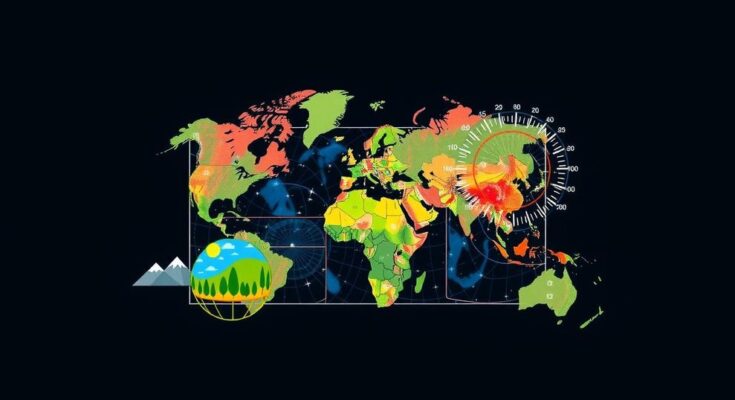The International Court of Justice is hearing a pivotal case regarding governments’ legal responsibilities towards climate change. Nearly 100 countries, including Vanuatu, will provide testimony on obligations to combat climate change and reparations for environmental damage. Although the court’s decision is non-binding, it may bolster future climate-related lawsuits. Hearings will continue until December 13, with a ruling expected in 2025.
The International Court of Justice (ICJ) in The Hague has commenced hearings on a crucial case that seeks to define the legal obligations of nations regarding climate change. The proceedings involve nearly 100 countries, notably Vanuatu, the nation that spearheaded the initiative for a legal opinion on climate responsibilities. The court will address critical inquiries related to the actions countries must undertake to mitigate climate change and the reparations they should provide for damage linked to escalating temperatures.
Despite the advisory opinion being non-binding, it could enhance the legitimacy of climate-related legal actions worldwide. The proposal to obtain this opinion was initially suggested by law students in Fiji five years ago and later adopted by Vanuatu, which has endured severe consequences from climate change, including the impact of devastating cyclones that affected a significant portion of its population last year. In response to Vanuatu’s experiences and those of other vulnerable nations, the UN General Assembly directed the ICJ to consider two significant climate-related queries concerning states’ international legal obligations to safeguard the climate from greenhouse gas emissions and the legal ramifications when states inflict harm on the climate through their actions or inaction.
Vanuatu will present its testimony during the hearing, underscoring its critical position as a frontline nation in experiencing the effects of climate change. Ralph Regenvanu, Vanuatu’s special envoy, emphasized the importance of the advisory opinion, stating that it could delineate international legal obligations for climate action. Although the court’s decision will not be legally binding, it has the potential to support cases brought by small island nations seeking compensation for damages caused by industrialized nations’ historical emissions.
Notably, these hearings occur shortly after the COP29 climate summit concluded, where wealthy nations’ commitment of $300 billion annually for climate financing by 2035 received criticism from developing countries who deemed it markedly inadequate. The court will also hear from representatives of major economies including the United States and China, along with members of the oil-producing group OPEC. The hearings will continue until December 13, with the ICJ’s opinion anticipated in 2025.
The International Court of Justice serves as the principal judicial organ of the United Nations, tasked with adjudicating disputes between states based on international law. The current case reflects growing global concerns about climate change and its impacts, particularly on vulnerable nations like small island states. Vanuatu’s proactive stance in seeking a legal opinion is part of a broader movement among nations adversely affected by climate change to hold major polluting countries accountable for their contributions to global warming. This process aims to clarify the extent of international legal obligations towards environmental protection and climate action.
The ICJ’s hearings on climate change liability are pivotal in defining governmental responsibilities towards mitigating environmental damage. The case, championed by Vanuatu, aims to underscore the legal ramifications of inaction in the face of climate change, potentially influencing future climate litigation globally. As the court continues its deliberations, the outcomes may significantly impact the legal landscape surrounding international climate obligations, paving the way for enhanced accountability and compensation for affected nations.
Original Source: www.bbc.co.uk




